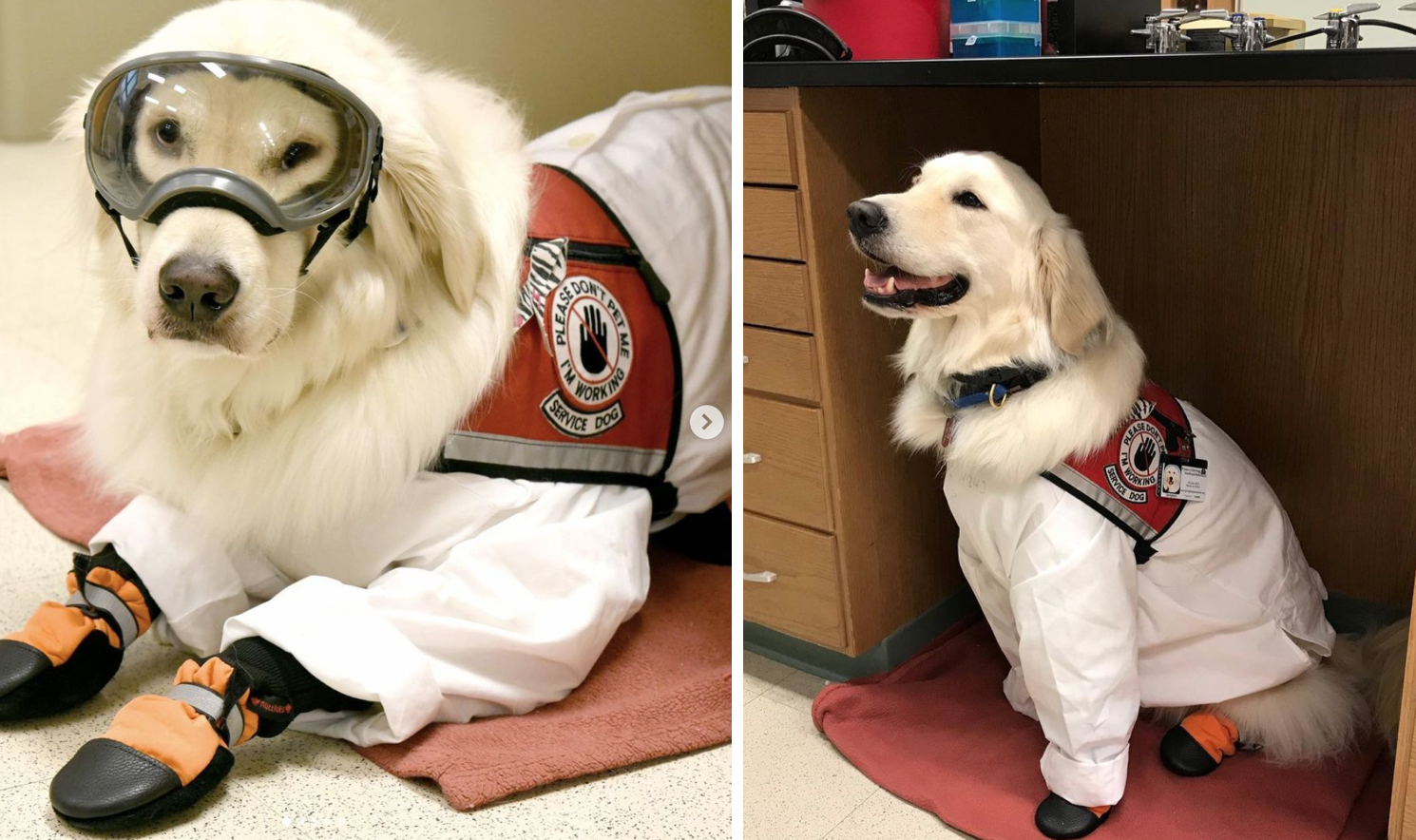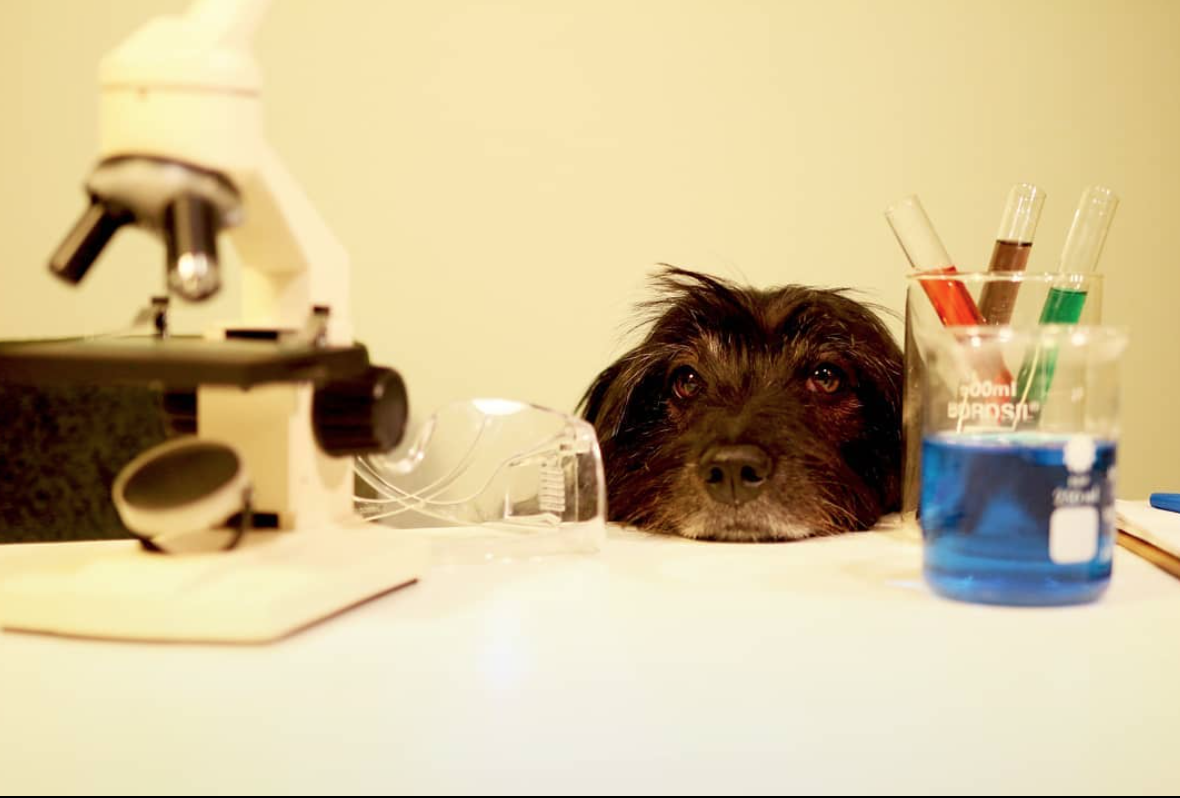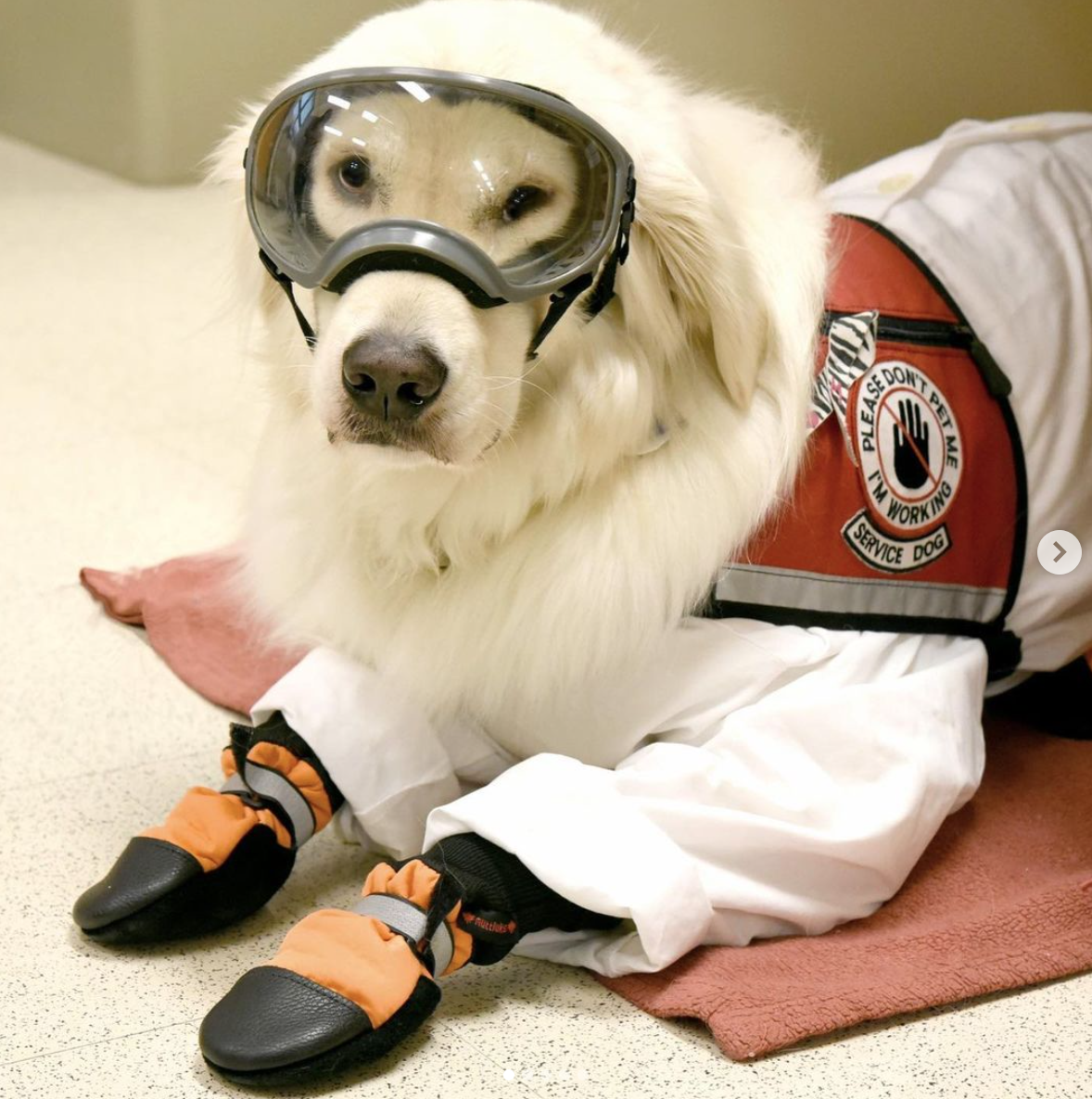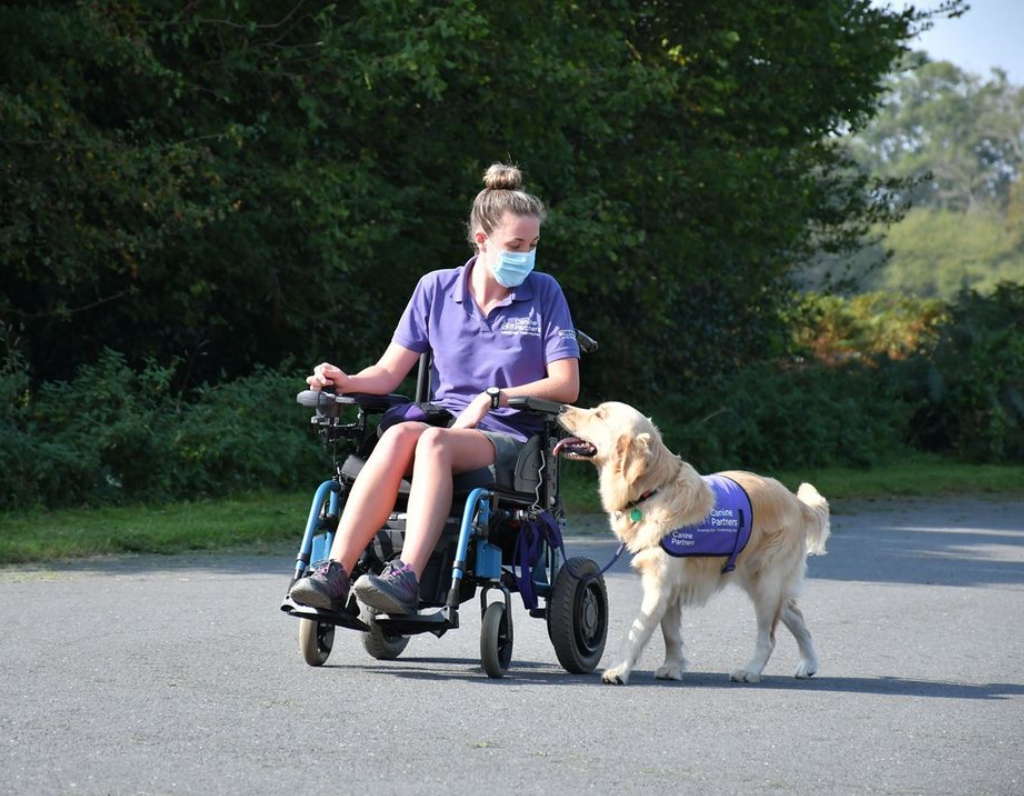
A trained service dog can really change the lives of people living with disabilities and other illnesses. The dogs help people get around, perform day-to-day tasks, and provide assistance during medical emergencies. These special animals make it so all people can live the lives they deserve, without being held back.
For scientists, researchers, and lab technicians, bringing a service dog to work or school is not so simple. In 2012, Joey Ramp was surprised to learn she couldn’t bring her assistance dog, Theo, into her college laboratories.

Regulations said labs were unsafe environments for support animals, but she needed Theo’s help to balance and retrieve dropped items. Ramp assumed that anti-discrimination laws would allow Theo to go with her everywhere. Eventually, after hours working with her lab manager and the college’s disability services, Theo was allowed to enter the lab in full protective gear (including a coat and goggles.)
When Ramp transferred to the University of Illinois, she faced even more difficulty getting Theo into her labs. The complexities of such an important issue made Ramp want to help others in her position.
“It left me wanting to change the landscape for the people that followed me.”

Many Scientists Need To Bring Their Service Animals Into Labs
In 2018, Ramp launched Empower Ability Consulting to advise universities, other scientific workplaces, and people with disabilities on hosting assistance dogs in laboratories. She estimates she has over 100 individual clients and at least a dozen universities.
The number of researchers requiring support animals has risen over the last several years. According to an ADI spokesperson, in 2019, 49% of handlers who were registered with ADI programs had guide dogs, 7% had hearing dogs and 44% had other types of assistance dogs.

Katherine Brafford, a Ph.D. student in ecology at UC Davis, leaves her guide dog Bing outside the lab. Sometimes, another person can support her needs at work.
“A cane, or a sighted guide, just works much better [for me] in a lab setting.”

Still, the difficulty arises in where to safely and reliably keep Bing during lab time. He needs a safe space and a quiet place where no one will disturb him or distract him from his duties. Brafford hopes service animals become common enough in these settings that the kinks are ironed out.
“My hope is that one day, it won’t be so weird that there are people with disabilities and service animals in science.”
The Complicated Process Of Letting Dogs Into labs
Scientists with support dogs think universities should involve them in the discussions about whether dogs can be in campus labs. Sharon Rozovsky, a chemist at the University of Delaware, Newark points out:
“Researchers can advocate very well for themselves — it won’t be the first time that they have had to explain to people what they need.”
Rozovsky thinks these conversations surrounding accommodations should happen months before the researcher or student arrives on campus. With more people needing service animals, researchers hope institutions will develop better protocols for supporting both dog and person. They also hope colleagues will be more understanding of their situation and learn not to disturb the working dogs.
H/T: Nature.com
Featured Image: @sampson_service_dog
The post Should Scientists Be Allowed To Have Their Support Dogs In Labs? appeared first on iHeartDogs.com.
from iHeartDogs.com https://ift.tt/3a8Y4iO https://ift.tt/2NAC3lh

No comments:
Post a Comment